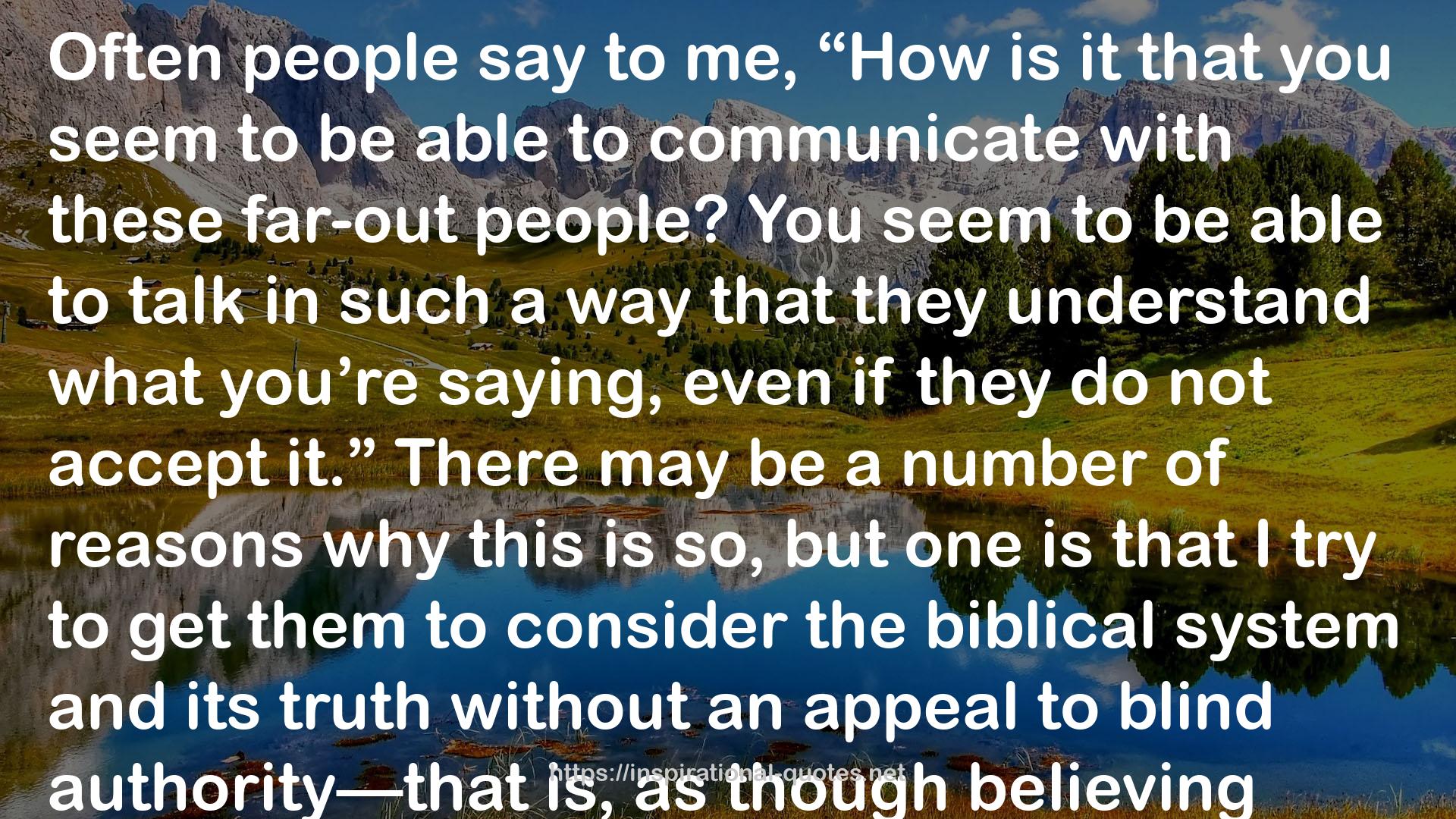" Often people say to me, “How is it that you seem to be able to communicate with these far-out people? You seem to be able to talk in such a way that they understand what you’re saying, even if they do not accept it.” There may be a number of reasons why this is so, but one is that I try to get them to consider the biblical system and its truth without an appeal to blind authority—that is, as though believing meant believing just because one’s family did or as though the intellect had no part in the matter. This is the way I became a Christian. I had gone to a “liberal” church for many years. I decided that the only answer, on the basis of what I was hearing, was agnosticism or atheism. On the basis of liberal theology I do not think I have ever made a more logical decision in my life. I became an agnostic, and then I began to read the Bible for the first time—in order to place it against some Greek philosophy I was reading. I did this as an act of honesty in so far as I had given up what I thought was Christianity but had never read the Bible through. Over a period of about six months I became a Christian because I was convinced that the full answer which the Bible presented was alone sufficient to the problems I then knew, and sufficient in a very exciting way. "
― Francis A. Schaeffer , Escape from Reason: A Penetrating Analysis of Trends in Modern Thought
